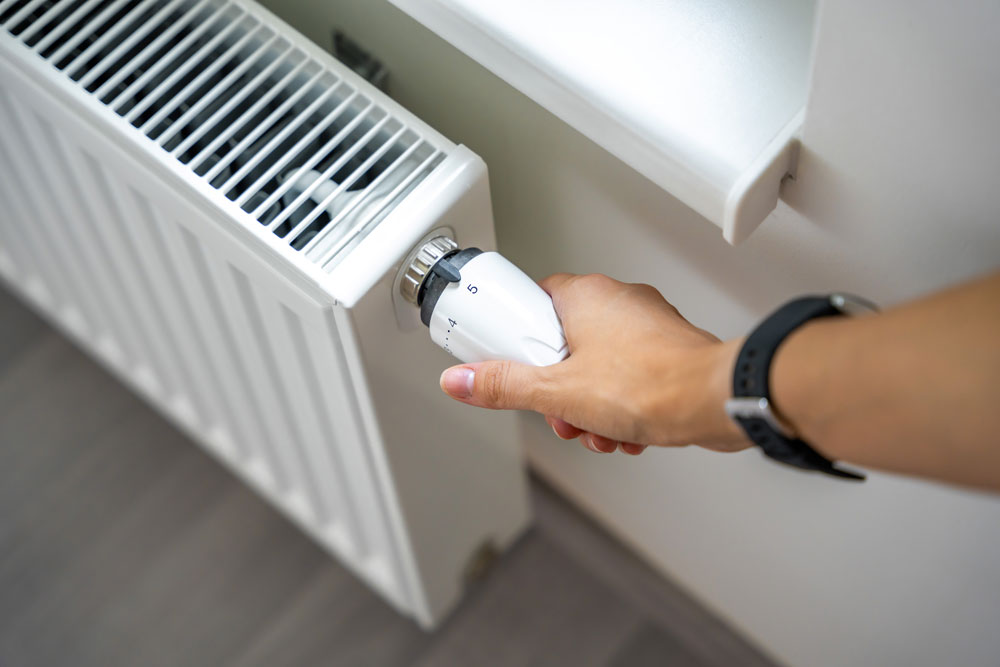Why Is My House So Cold?
 CONTENTS
CONTENTS
- Broken thermostat
- Old or broken heating system
- Blocked radiators
- Draughts
- Insufficient insulation
- Old, single-glazed windows
- Uninsulated floors
- Contact us today
Living in a cold house can put you at risk of health problems including respiratory infections, can worsen cardiovascular health, and may hamper your mental health, to name just a few of the consequences. If your house is always cold, even when you turn the heating up, there is likely to be a problem with your home or heating system.
Here at ICE Thermal, we offer a wide range of thermal insulation services and surveys. Our operatives have plenty of experience installing our cutting-edge thermal insulation in commercial and domestic properties across the UK. They are available 365 days a year, including bank holidays.
Keep reading to learn more about what could be causing your house to be so cold.
Broken thermostat
A thermostat failing to communicate with your heating system means no signal is being sent to start warming up your rooms. The issue could stem from something as simple as dead batteries or as complex as faulty wiring or an aging device.
To get back control over your home temperature, check if your thermostat needs new batteries or resetting. If these quick fixes don’t work, consider calling in professionals who can inspect your heating systems and thermostat for any problems and fix them.
Old or broken heating system
Heating systems that are past their prime can struggle to keep up with the demand for warmth. An inefficient boiler can also consume lots of energy without effectively heating your home, leading to higher bills and lower temperatures. Regular maintenance is key to ensuring your boiler and heating systems are running smoothly.
A professional service may reveal issues such as worn-out parts or the need for an upgrade. Replacing your boiler and heating system is better for the environment, too, because newer models are designed with efficiency in mind. You can find out more about the signs you need a new boiler here.
Blocked radiators
Over time, radiators can get clogged with sludge and debris which stops the heat from circulating properly. To tackle this issue, bleeding your radiators is a good start but may not be enough for heavy blockages. A power flush could help, however. By forcing water through at high velocity combined with specialised cleaning agents, it can rid their systems of any build-up.
It is also recommended that you get an expert to check out and clean your radiator yearly to keep everything running smoothly, particularly before the winter.
Draughts
Air leaks can allow warm air to escape from your home and cold outside air to enter it. By using weather stripping or draft excluders, you can reduce the amount of draughts in your home.
For those hard-to-spot air leaks, consider using specialist tools like blower doors which exaggerate how much outside air is infiltrating your space. They will help you pinpoint exactly where the draughts are so you can rectify them.
Insufficient insulation
One of the main causes of a cold house is a lack of or poor insulation. The most common places where homes lose heat include attics and walls with poor insulation levels. To check if this is an issue in your house, look for draughts around windows or doors as these indicate warm air is escaping from your property. An energy audit can also help identify specific problems so they can be fixed swiftly.
If poor insulation is an issue in your home, our thermal insulation installation services can help make your home a warmer, more energy-efficient place. Our thermal insulation installers have access to a wide range of top-quality thermal insulation materials including mineral wool, phenolic foam, and fibreglass.
You can find out more about what thermal insulation is in this blog.
Old, single-glazed windows
Unlike double or triple-glazed windows, they don't trap layers of air between panes so there is no buffer zone keeping the warm in and the chill out. Upgrading from single to double glazing can halve heat loss through windows and reduce household energy bills significantly.
If you do look into double-glazing, look for those labelled "Low-E". This stands for low emissivity and reflects more heat back into the room.
Uninsulated floors
Heat can escape directly through the ground, especially if you have bare floorboards or tiles. The type of insulation you need will depend on whether you have solid or suspended timber floors. Solid floors may be insulated with rigid insulation laid on top, whereas suspended timber floors might benefit from mineral wool insulation supported by netting between the joists.
Sealing gaps and cracks is crucial, too; even small openings can let out a significant amount of warmth.
Contact us today
We offer a number of services including trace installation, fire protection insulation installation, and thermal insulation installation.
To find out more about our thermal insulation solutions, contact our team today by calling 020 3376 4802 or sending an email to [email protected].

Speak with me today,
I’m here to help
By asking you a few questions either via phone or email I can immediately provide a realistic estimation of the cost.
You’re in good company. We’ve cleaned for the following commercial clients… View all

Why choose us?
- Cater to a wide variety of cleaning situations
- Nationwide coverage, available 24/7
- Cater to commercial and domestic clients
- Free survey provided prior to quotation
- Emergency response team
- Offer a bespoke service designed to suit all your needs
- All technicians hold professional health and safety qualifications, including BICSc, IOSH, Dewpoint Professional & Safe Contractor
We’re fully accredited
We place best practise, professional expertise and health and safety at the core of our business. We’re fully compliant with all legal obligations. You can view a list of our accreditations below, or visit our Health & Safety page for more information.











-RGB-small.1707319151.jpg)




















